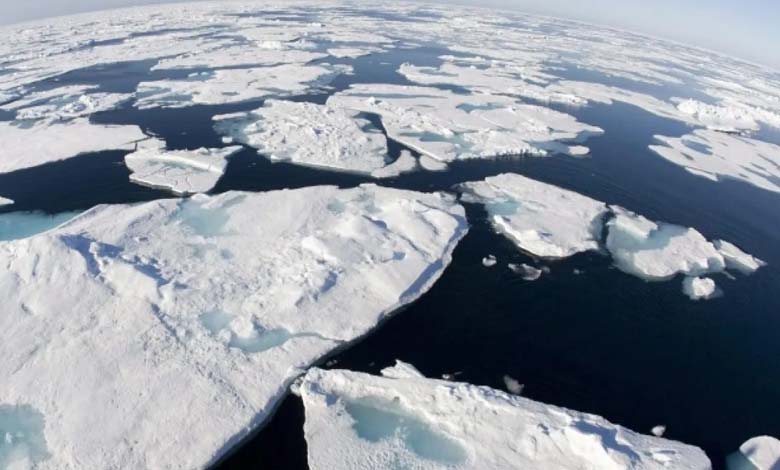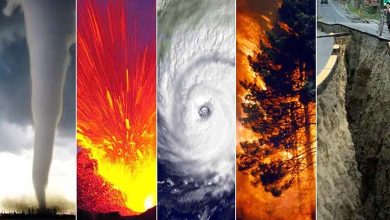“Climate Tipping Point” threatens dangerous melting in Antarctica

Scientists have concluded that a new “tipping point” may be reached in Antarctica, where the continent is heading towards “uncontrolled melting” of its ice sheets, according to a study published on Tuesday.
The melting occurs due to the infiltration of warmer ocean waters between the ice and the land it sits on.
A climate tipping point is a critical threshold after which a system reorganizes itself, often suddenly and/or irreversibly, leading to a series of cascading consequences.
The ice sheets in Antarctica rest on a rocky base and extend beyond the coast to float on the sea.
Previous studies have shown that seawater, which is warming due to climate change caused by human activities, can infiltrate the meeting point between land and sea, advancing under the land ice deeper than ever before.
The study, published in “Nature Geoscience” on Tuesday, confirms this hypothesis and measures it using graphical models. As seawater temperatures rise, seawater infiltration accelerates over short distances of 100 meters to tens of kilometers, causing ice to melt by heating it from below, explains the study’s lead author, Alexander Bradley.
According to AFP, the study warned that this “could lead to a tipping point, after which ocean water would enter under the ice sheet indefinitely, causing uncontrolled melting.”
This could lead to a rise in sea levels when accelerated melting exceeds the formation of new ice on the continent, threatening coastal populations around the world.
However, the models used by researchers in the United Nations’ Intergovernmental Panel on Climate Change (IPCC) to predict the impact of climate warming in Antarctica did not account for this phenomenon. Additionally, these models have systematically underestimated the extent of ice loss recorded so far, the study noted, indicating the need to update these models.
But above all, the study’s results “highlight the urgent need for climate action to prevent reaching these tipping points,” said Bradley, who is a researcher at the British Antarctic Survey.
In May, the planet’s ocean temperatures again broke a monthly record for the fourteenth consecutive month, averaging 20.93 degrees Celsius, according to the European Copernicus network.
Bradley warns that “every tenth of a degree (of warming) brings us closer to this type of process, and these tipping points are getting closer and closer.”












